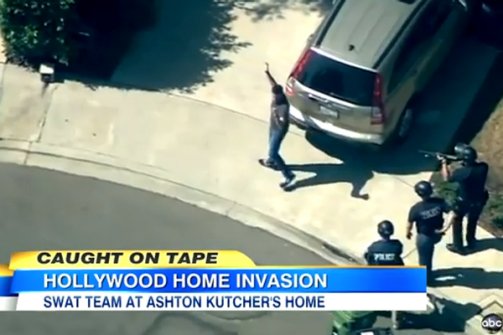
On Wednesday, October 3, 2012, the “Two and a Half Men” star, Ashton Kutcher got “Punk’d.” Kutcher is well-known for the pranks he pulls on other famous friends. A phony phone call was made to the police from, supposedly, the inside of Kutcher’s Hollywood Hills home. The message appeared to be from a women hiding inside the house. She told the police that there was series of shots being fired and that someone was down. But obviously this was all just a hoax, because when police and other law enforcement people arrived at Kutcher’s home everything was OK; Kutcher was safe and sound on the set of the reality show, “Two and a Half Men.”
The FBI calls this sort of prank “swatting”—when someone reports a false emergency to prompt a response from law enforcement and often a SWAT team. It has become a nationwide trend, with celebrities and political bloggers being targeted. But police say it has become a growing problem; it puts the police and others in harm’s way.
An unlucky Los Angeles prosecutor [and political blogger]—Deputy District Attorney Patrick Frey—was home in mid-July last year, when a SWAT team banged on his door yelling “Fire!” and pointed guns at him through a window. He described his experience as “the most terrifying night of his life.” One pull of the trigger and this seemingly innocuous prank could have lead to death.
Is “swatting” really that much fun? During the last decade, no one has been killed by “swatting” — yet. However, a few people received minor scrapes while trying to run away from the police, one police officer had been injured while responding to a call, and two individuals suffered minor heart attacks from shock.
These injuries may seem minor, but real danger lay beneath the surface of this situation.
“It’s a very dangerous situation, and I think it’s a miracle that nobody’s been killed yet,” Frey told The Daily Beast during an interview. “I had police officers pointing guns at me; my cell phone was in my hand. If they thought I was armed and dangerous, I was one finger-pull of the trigger of losing my life that night. It was very scary. It seemed like it was designed to cause us the potential for being shot and killed.”


